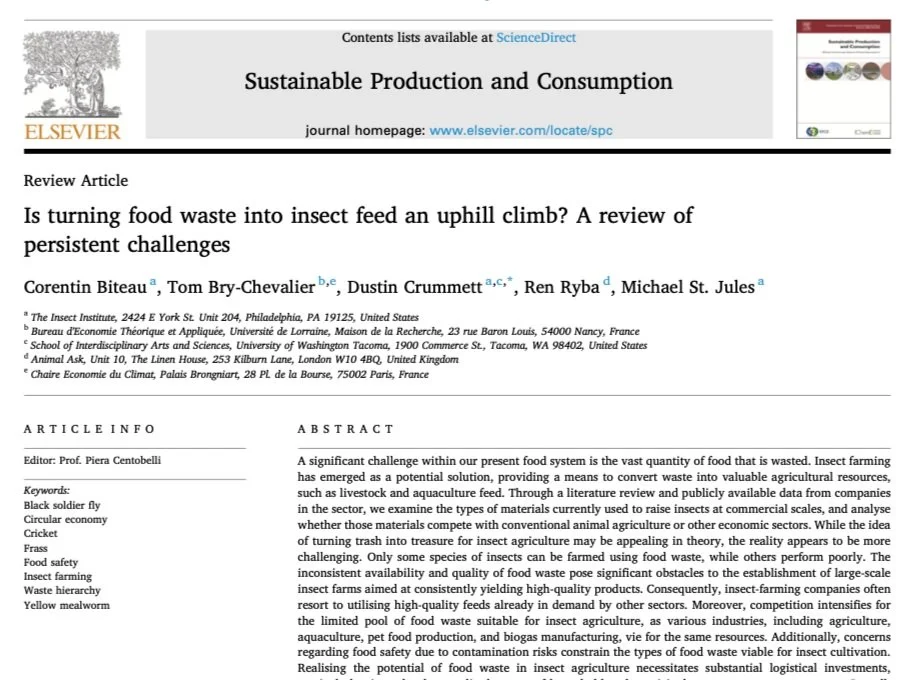
Scientific studies
Find the studies we have co-published in peer-reviewed scientific journals here. Written in collaboration with the Insect Institute, they have been validated by other experts in the field through the peer review process. They are available in open access.
Additional studies are currently being written and are expected to be published shortly.
Economy
Insect-based livestock feeds are unlikely to become economically viable in the near future
Food and Humanity
To reduce dependence on fishmeal and soybean meal, insect meal needs to be economically competitive. This study observes that insect meals are currently too expensive, costing two to ten times more than conventional products. While several future avenues are being explored to reduce costs, it is unlikely that they will be enough to make a large shift in the coming years.
Human food
Beyond the buzz: insect-based foods are unlikely to significantly reduce meat consumption
npj Sustainable Agriculture (Nature group)
This literature review examines the consumer acceptability of insects and strategies to enhance their attractiveness. We find that cultural and social factors, particularly disgust, significantly limit the potential of insects. As a result, many investors have gradually withdrawn from this market. Furthermore, even if consumers were more inclined to try insects, reducing meat consumption would remain difficult due to various logistical, cultural and financial obstacles. Finally, insects have few comparative advantages over plant-based alternatives, which are more widely accepted.
Environment
Have the environmental benefits of insect farming been overstated? A critical review
Biological Reviews
This is the most comprehensive literature review to date on the environmental impacts of insect farming in Europe. After a rigorous selection process, 352 relevant studies were selected to assess the environmental impact of the sector. The study concludes that, in the majority of cases, insect proteins have a higher environmental impact than the ingredients they are intended to replace, whether for human or animal consumption, due to low meat replacement and low use of waste.
Research
Bugs in the system: the logic of insect farming research is flawed by unfounded assumptions
npj Sustainable Agriculture (Nature group)
This perspective notes that while many economic and environmental promises have been proposed in the insect farming literature, they are often based on unrealistic assumptions. It identifies three recurring "bugs":
Obsolete studies often used as references
Overly optimistic assumptions about the use of waste
Economic projections containing errors
Circular economy
Is turning food waste into insect feed an uphill climb? A review of persistent challenges
Sustainable Production and Consumption
This literature review examines the use of food waste to feed insects, a practice that supports the circular economy. We find that the majority of large insect farms actually use little food waste to feed insects, due to nutritional, regulatory, sanitary and logistical barriers. Instead, the industry often utilises high-quality cereal-based agricultural co-products, which are already used in conventional animal feed.





